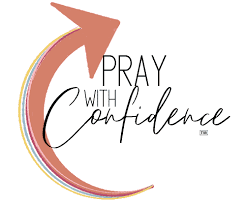Tangled stories
Jesus was “never without a story”. He used them to help His audience gain a greater understanding of God and to resolve real-life problems. The Apostle Mark describes this as “sorting out tangles” and “untying knots.”
When He was alone with His Disciples, Jesus went over everything, sorting out the tangles, untying the knots. Mark 4:34 (The Message)
Today we will examine the benefit of listening to God’s voice through His Word to sort out the tangles and knots in our life.
Learning to sort out my tangles
Have you ever been faced with a knotted shoe lace or tangled necklace? It can be frustrating trying to find the biggest knot that will result in the ultimate resolution to your problem. Knots can impede the full use and benefit of our possessions or abilities, i.e., knots in a tie or tangled chords of a wind chime.
How did we learn to untangle and untie knots? While I can’t remember my “first knot” or most “frustrating tangle”, I do recall that if I had problems with either of these, my mother was always there to help me based on two things: First, I had to realize my limitations—I was unable to resolve this challenge on my own. Secondarily, I had to trust her–she was both available and able to help me with my problem.
Life is full of knots and tangles
Our world is full of knots and tangles. The challenges of life appear to be “insurmountable messes” which we are unable to resolve.
- Life cycle knots—work, family, and relationships.
- Personal tangles—financial challenges, health problems, dying and death.
- Societal snarls—turmoil, instability, and uncertainty.
Some knots and tangles are the natural result of living in a fallen world; others may be of our own creation. What is the answer to these kinks and twists of living? How are we to manage these real situations in our lives?
The World and Life Knots
The world offers futile solutions to life’s knots and tangles. It suggests resolution through substances (alcohol, drugs, and food), through systems (affiliations, power, and influence) and through stuff (materialism and riches) (1 John 2:15-17).
These answers are temporary and subject to change (2 Cor. 4:18). However, God’s Word is eternal and provides needed insight into His nature and the realities of life, inviting believers to trust, peace, and contentment (Ps. 37:1-6, 23-27).
It’s In the Word
There’s an old gospel song entitled, It’s All in the Word that retorts: “The answer to your problems, if you haven’t heard…it’s all in the Word.”
For those who are willing to listen to Jesus’ voice, there are many promises and privileges (John 10:27). As we connect to God through His Word and the Holy Spirit, we have access to wisdom and knowledge so desperately needed to navigate these perilous times (Eph. 1: 8).
The Psalmist put it more eloquently in saying “God’s Word is a lamp to our feet and a light to our path”. God’s close proximity keep us from stumbling. It is also broad and sufficient to protect us from potential danger and pitfalls (Ps. 119:105). Psalm 19:7-11 speaks to the great worth of God’s Word. “Warning and reward” are key benefits in embracing God’s Word.
What about my knots?
God may not choose to always remove the knots and tangles in our life. Some knots and tangles are needed to mature and strengthen us. They help us when we choose to be “trained” by them (Hebrews 12:11).
However, we can always depend on God to be available and ready to help us “find the big loops” (John 16:33). Jesus is ready to help us with the tangles and knots of our life. What are the things that you’ve been unable to resolve? Draw near to Him who is willing and able to help.









